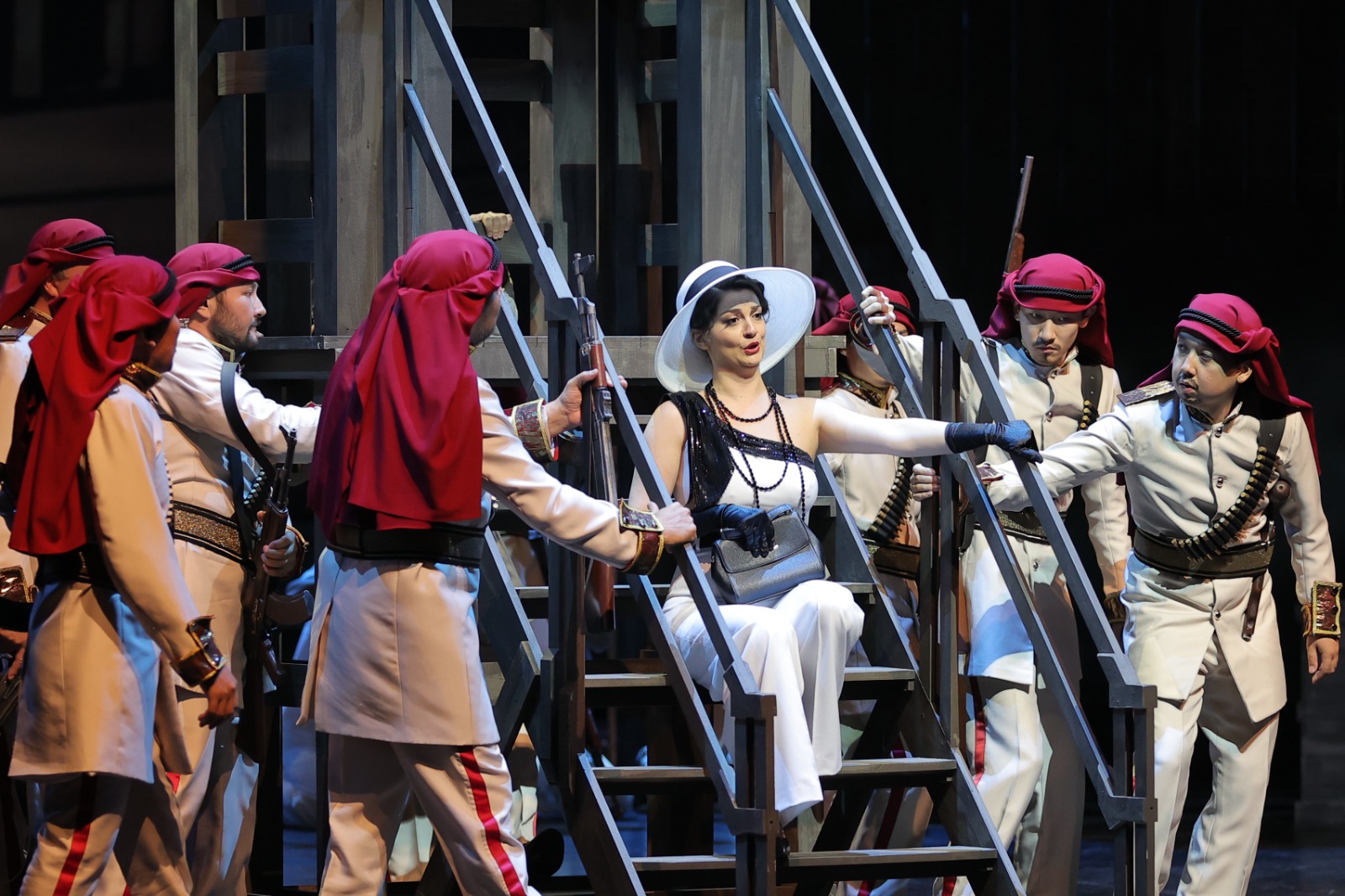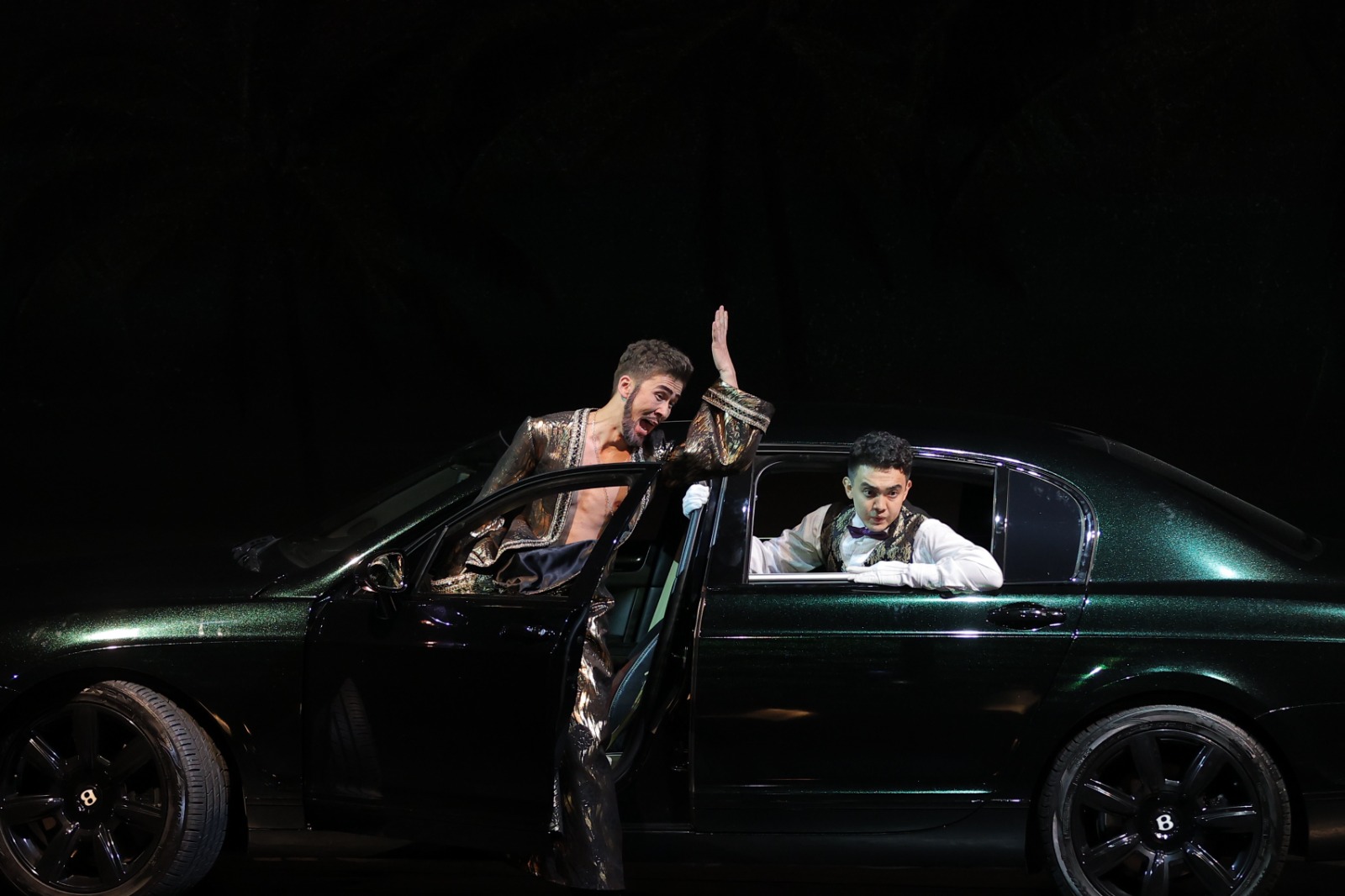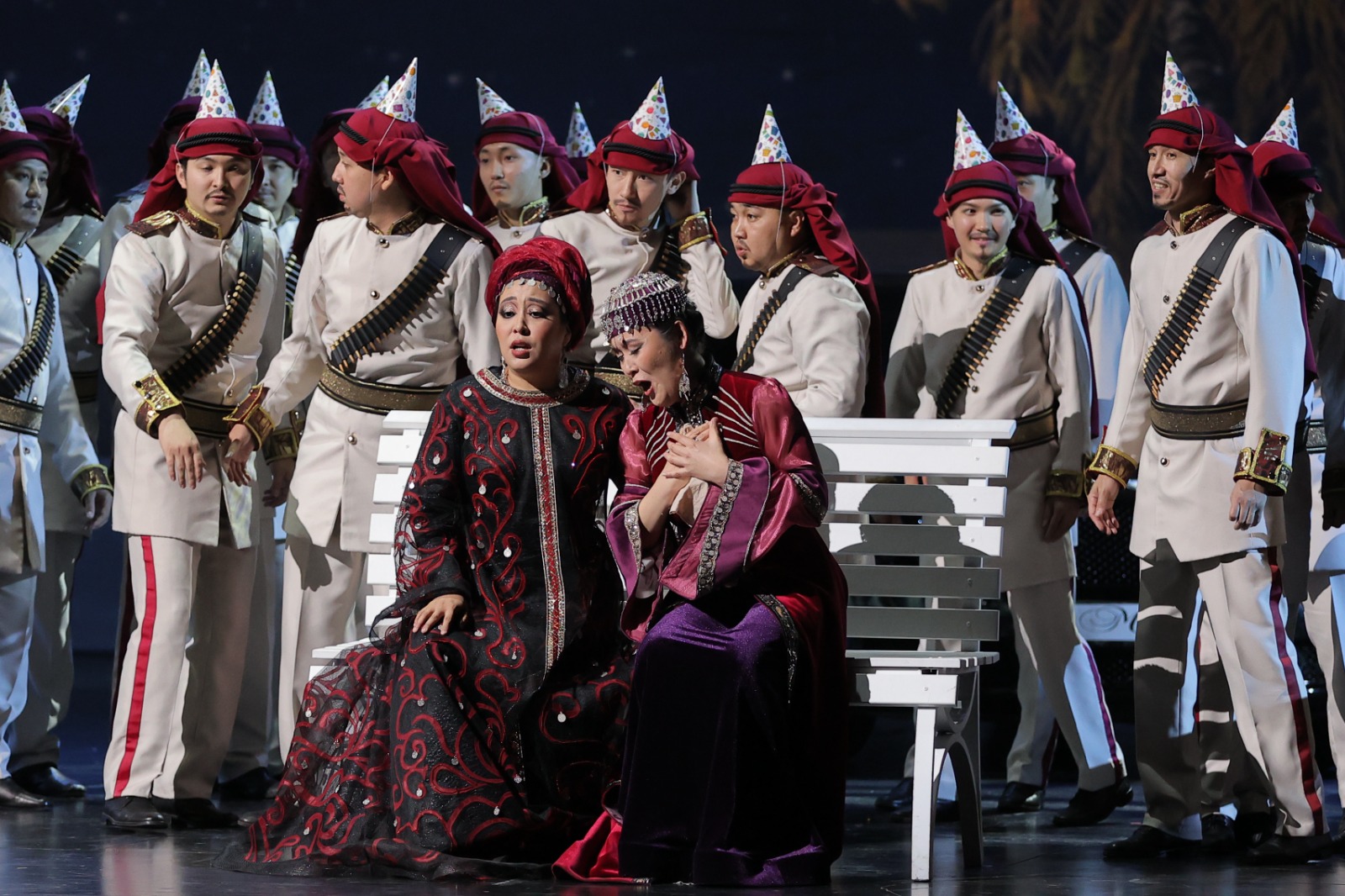ASTANA – Astana Opera made a crucial addition to its repertoire with the premiere of Gioachino Rossini’s masterpiece “L’Italiana in Algeri” (The Italian Girl in Algiers) with a modern take on a culture-clash comedy on June 29.

Italian guest soloist Laura Verrecchia awed the audience with her Isabel part on the day of the premiere. Photo credit: Astana Opera press service.
The two-act opera became the highlight of the Operaliya 2023 International Festival program, which will feature Verdi’s “Aida” and Puccini’s “Turandot,” as well as violin and symphonic music concerts with guest artists and conductors from 12 countries in the weeks to come.
With its twisted plot and mix of comedy and farce, the “L’Italiana in Algeri” opera is pure delight.
The stage director Yerenbak Toikenov brought a fresh look to Rossini’s opera with many modern details, from costumes that transformed eunuchs into guards, slaves into tourists, and pappataci (a title for the most exemplary lovers) into strippers to the real car on stage, making it all the more entertaining.

Stage director Toikenov included many modern details such as a real car on stage, making it all the more entertaining. Photo credit: Astana Opera press service.
“This production is a satirical take on modern customs and a magnifying glass aimed at the relationship between the sexes,” said Toikenov.
He aimed to reimagine a comedy centered around cultural differences with the intention of conveying the importance of valuing what one already possesses.
“Fed up with his countless lovers and his wife, Mustafà bey passionately wants to rush into the maelstrom of passions specifically with an Italian woman, in whom, as he heard, emotions run high. However, in the end, he will perceive the value of appreciating the most important things in life – family, friends, kindness, love and mutual understanding,” said Toikenov.
The success of the staging of opera buffa (a comic opera) lies in a cast that could not only sing but act, said Ala Simonishvili, a specialist in the vocal and musical training of performers.

The majority of the roles, including the main ones, were performed by the Astana Opera International Opera Academy attendees, who will graduate from the academy in July. Photo credit: Astana Opera press service.
“Rossini’s difficulties are in vocals, but in comedy, the additional difficulty is to be a good actor. It is the theater with a capital letter. The genre of comedy is more difficult than tragedy because tragedy does not have the same dynamics of movement and action. In comic opera, every word has a subtext. The actor has to know mimicry, movement, plasticity and be able to dance if necessary,” said Simonishvili.
The majority of the roles, including the main ones, were performed by the Astana Opera International Opera Academy attendees. The young cast under the conductor Ruslan Baimurzin managed to showcase light and comic performance despite the vigorous demands of the score.
The main female part of Isabel on the day of the premiere was performed by the Italian guest soloist Laura Verrecchia who delivered with all the fire and charm attributed to her character.
Elmira Shpekpayeva, a rising star of the academy, who played the main female part on June 30, said as Isabel, she tries to convey all the passion, wit and heart in abundance.
The character defines a saucy moment by glimpsing her foot or through a provocative yet discreet change of boudoir. To portray a character with such a range of emotions, the performer has to be versatile, said Shpekpayeva.
“She [Isabel] manifests herself sexually. Sometimes she is soft, sometimes she is fierce, sometimes she is beautiful, sometimes she is tender and other times she cries. Her character is revealed in all her colors,” she said.
Many of these qualities are on display in the work of clothes designers. Costume designer Manana Gunia created costumes that display Isabel’s freedom of expression. Her main inspiration was music.
“This is my second Rossini production at this theater and I am always happy to work on Rossini’s brilliant music because it is not only a source of inspiration but also a food for thought,” said Gunia.
She also was inspired by the interplay of cultural contrasts while creating the costumes.
“The production is oriented to the present day so they are not just ethnographic costumes but a reflection on the theme of the East, a variation on the Islamic and European cultures, on their conflict and contrast. In the course of the opera, these cultures come into contrast and symbiosis,” she said.

